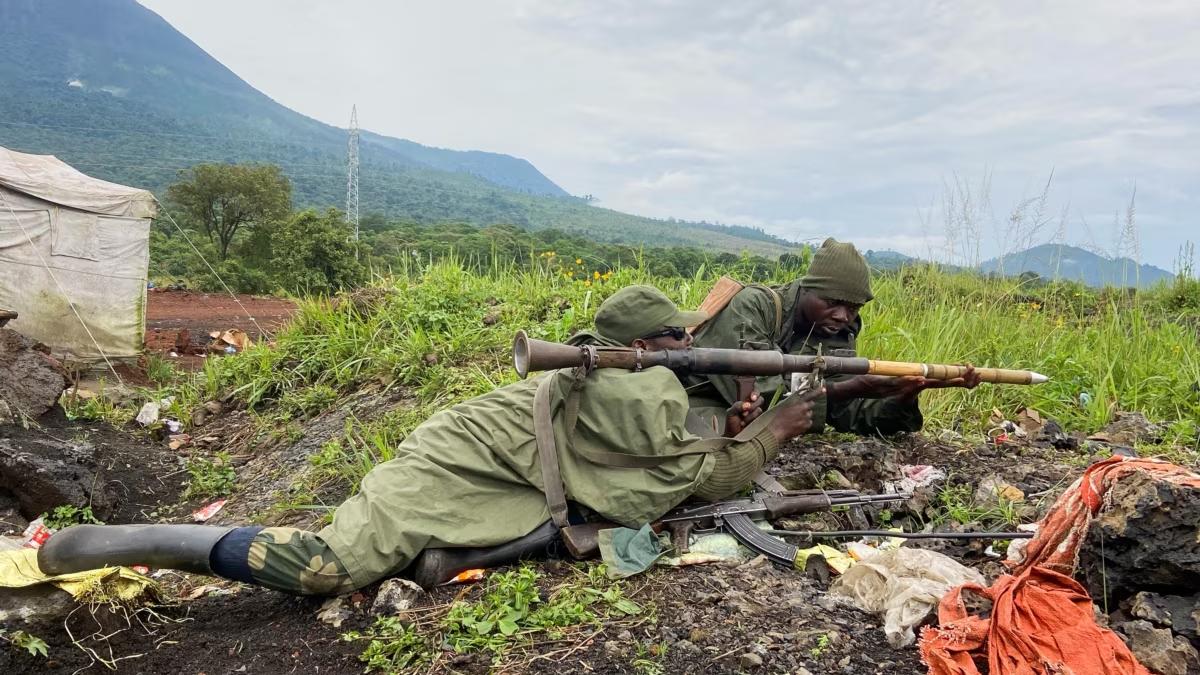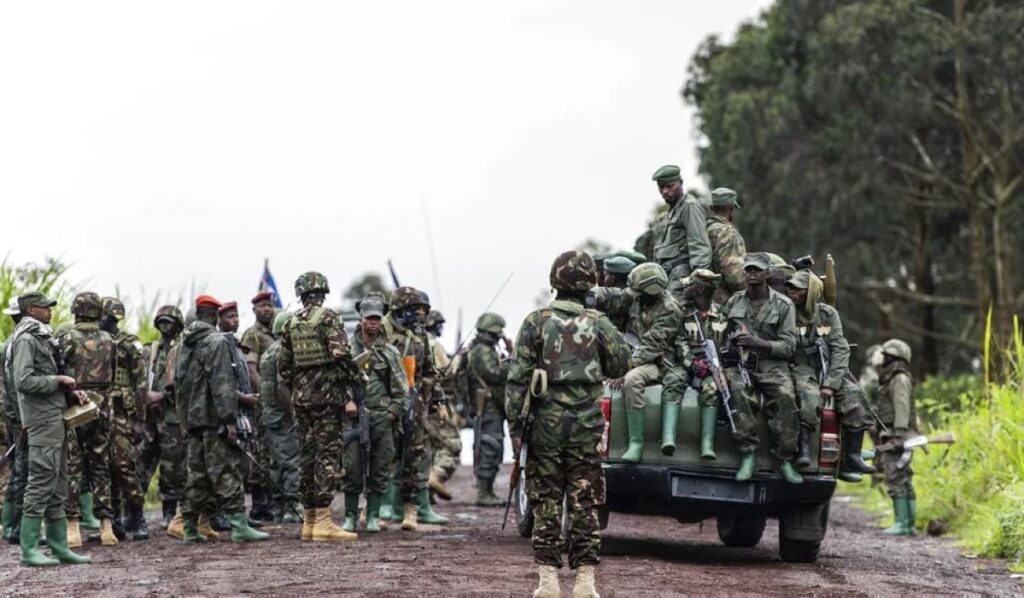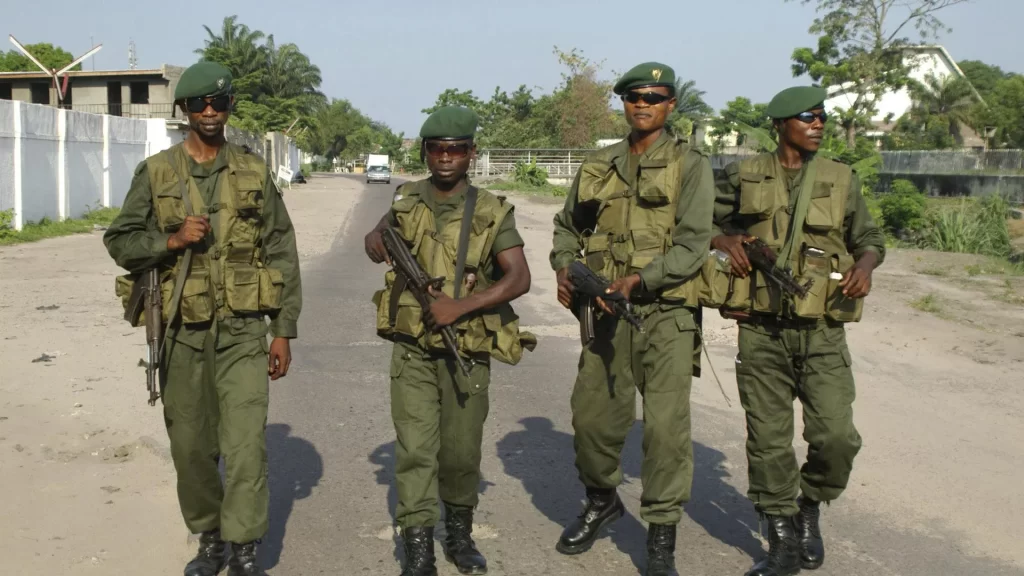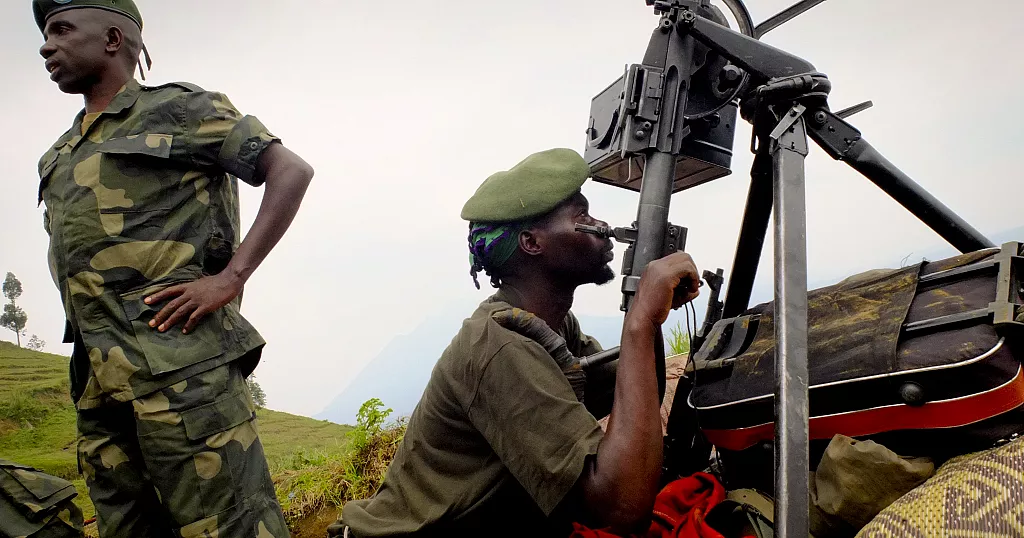Intense fighting erupted on Sunday, August 25, in the eastern Democratic Republic of Congo (DRC) as M23 rebels clashed with government forces, shattering a fragile ceasefire and reigniting concerns about regional stability. The violence, centered in the strategic Lubero district of North Kivu province, threatens to unravel recent diplomatic efforts aimed at bringing peace to the troubled region.

Local media reported violent clashes near the Uganda border, with the fighting concentrated along the vital commercial axis connecting the economic hubs of Butembo and Beni. This escalation comes barely a month after Angola brokered a ceasefire agreement between the DRC and Rwanda on July 30, highlighting the tenuous nature of peace in the region.
Lieutenant-Colonel Ndjike Kaiko Guillaume, speaking for the Congolese army (FARDC), confirmed in a press statement on Monday that M23 rebels had launched attacks on army positions in Lubero. The FARDC spokesperson emphasized that Congolese authorities would be referring the matter to the Expanded Joint Verification Mechanism, a body comprising military experts from the International Conference on the Great Lakes Region Member States, South Africa, MONUSCO (the UN peacekeeping mission in DRC), and the African Union.

The resumption of hostilities casts a shadow over recent diplomatic initiatives, including the third meeting of foreign ministers from the DRC and Rwanda held in Luanda, Angola, on August 22. That meeting, part of the ongoing Luanda Process led by Angolan President João Lourenço, failed to achieve significant progress in resolving the conflict. A follow-up meeting is scheduled for September 9-10, though the recent outbreak of violence may complicate these talks.
The March 23 Movement (M23), formed in 2012 by defectors from the Congolese army, has been a persistent source of instability in eastern DRC. The group began its current campaign in January 2021, managing to capture several towns and villages in North Kivu Province near the Rwandan border. The Congolese government has consistently accused Rwanda of supporting the rebels, a charge that Kigali vehemently denies.
This latest flare-up of violence underscores the complex web of regional tensions and historical grievances that continue to fuel conflict in the Great Lakes region. The DRC’s eastern provinces have long been a hotbed of ethnic strife and competition for control over the area’s vast mineral wealth, with neighboring countries often accused of meddling to further their interests.

International observers are closely monitoring the situation, with concerns that a prolonged conflict could lead to a humanitarian crisis and further destabilize the region. The United Nations, through its MONUSCO mission, has repeatedly called for all parties to adhere to the ceasefire and engage in meaningful dialogue to address the root causes of the conflict.
The failure of the recent ceasefire agreement, barely a month after its implementation, raises questions about the efficacy of current peacekeeping and diplomatic efforts in the region. It also highlights the challenges facing the DRC government in asserting control over its eastern territories and protecting civilian populations from armed groups.

As fighting continues, there are growing fears of potential civilian casualties and displacement. Humanitarian organizations operating in the area are on high alert, preparing for a possible influx of refugees fleeing the violence.
The international community now faces increased pressure to intervene more decisively to prevent a full-scale return to conflict. With another round of talks scheduled for early September, diplomats are racing against time to salvage the peace process and prevent further escalation of hostilities.
As the situation unfolds, all eyes remain on the responses from Kinshasa and Kigali, as well as regional mediators like Angola, whose efforts to broker peace are being severely tested by this latest outbreak of violence. The coming days will be crucial in determining whether diplomacy can prevail over the cycle of conflict that has long plagued this resource-rich but volatile corner of Africa.



